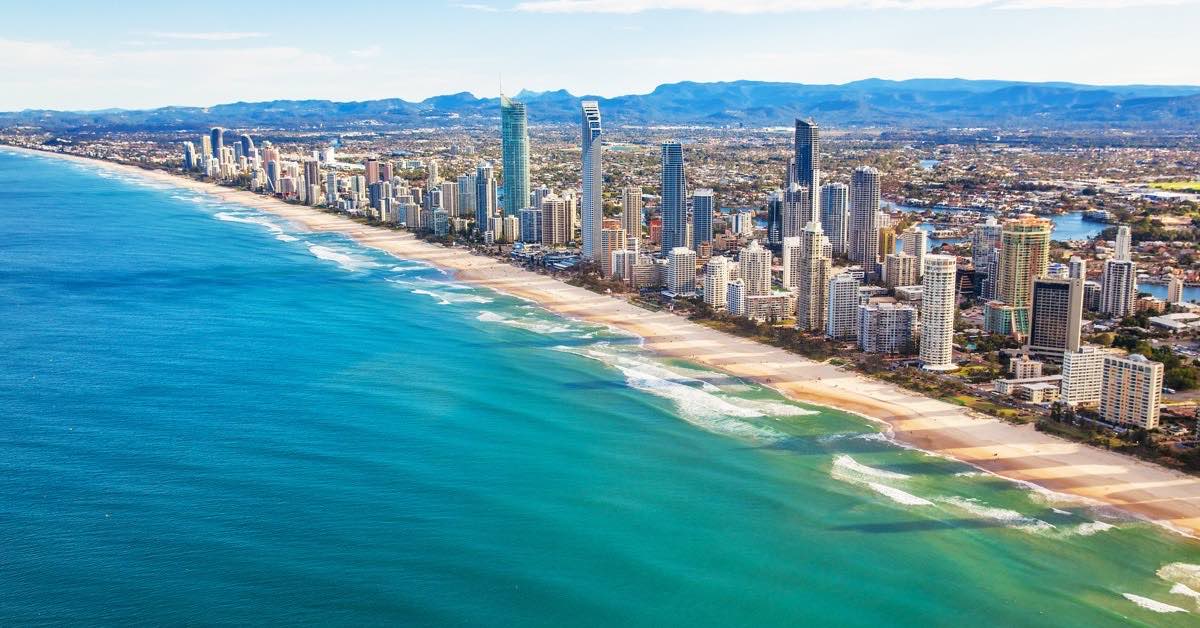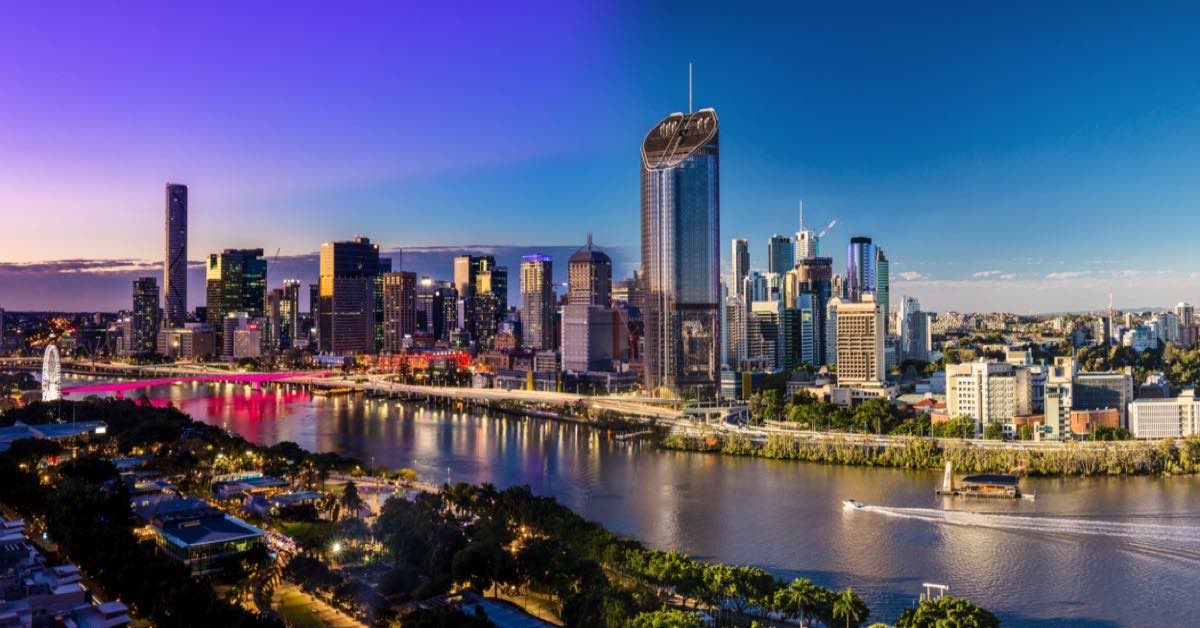Finding the perfect apartment to rent in Australia can be a difficult and time-consuming process, with lots of research and budgeting required. In this comprehensive guide, we’ll walk you through the process of researching the Australian rental market to find a living space that perfectly matches your needs and preferences. From setting a budget and determining your must-haves to researching available apartments and negotiating with landlords, we’ve got you covered. So sit back, relax, and get ready to unlock the secrets to finding your dream apartment in Australia.

Explanation of The Australian Apartment Rental Market
The Aussie apartment rental market is a complex and dynamic system, with various factors that can impact the availability and affordability of rental properties. According to recent reports, the demand for apartments in Australia has been on the rise in recent years, with a growing number of people opting for apartment living over traditional house living. This trend has been driven by factors such as the increasing population in urban areas, changing lifestyle preferences, and the desire for more affordable housing options.
However, despite the growing demand for apartments, the Australian rental market can be highly competitive and challenging to navigate, particularly in major cities like Sydney, Melbourne, and Brisbane. Rental prices can vary greatly depending on the location, size, and quality of the unit and the current state of the rental market.
Additionally, various laws and regulations govern the rental market in Australia, which can make it difficult for renters to understand their rights and responsibilities. Therefore, it’s crucial to do your research and understand the market before starting your search for an apartment.
Determine Your Budget
Importance of Having a Budget
When searching for an apartment to rent in Australia, it’s essential to have a budget in place to avoid overspending and financial stress. Having a budget allows you to set clear financial boundaries, which can help you avoid falling in love with a rental beyond your means. Moreover, it enables you to focus on properties within your price range, saving you time and energy in the long run.
Another reason a budget is essential is that it allows you to plan for additional costs associated with renting an apartment, such as utilities and security deposits. By setting a budget that includes these costs, you can avoid unpleasant surprises and plan your finances accordingly.
Additionally, having a budget can give you leverage when negotiating with landlords, as it shows that you are a responsible renter who understands the value of money. Overall, having a budget is essential in finding the perfect accommodation that fits your financial needs and priorities.
Researching Rental Prices in The Suburb You Want to Live In
Researching rental prices in the area, you want to live in is critical in finding the perfect living space. It helps you get a sense of the rental market in the area and what you can expect to pay for an apartment that meets your needs. Rental prices can vary greatly depending on the location, type of apartment, and the current state of the rental market. Therefore, it’s essential to research prices to ensure a realistic understanding of what you can afford.
One way to research rental prices is to look at online property listing websites such as Domain, RealEstate.com.au, and realestateview.com.au. These websites allow you to search for apartments in specific areas and provide details on the property, such as the number of bedrooms, bathrooms, amenities, and the rental price.
You can get an idea of the average rental price in the area by looking at similar properties listed on the website. It’s important to remember that rental prices may vary depending on the time of year, with peak rental season typically during the summer. Therefore, it’s recommended to research rental prices in advance to avoid paying higher rental prices during peak seasons.
Tips for Budgeting and Affordability
Budgeting and affordability are crucial factors when searching for an apartment. Here are some tips to help you create a budget and find an apartment that fits your financial needs and priorities:
- Set a realistic budget: When setting a budget, it’s essential to be realistic about what you can afford. Consider your income, expenses, and any debt, and use this information to set a realistic budget. Remember that you may need to make sacrifices or adjust your lifestyle to fit your budget.
- Prioritise your must-haves: When searching for an apartment, it’s important to prioritise your must-haves, such as the number of bedrooms, location, and amenities. This will help you narrow your search and find an apartment that meets your needs and fits your budget.
- Consider sharing an apartment: Sharing an apartment with a roommate or two can be an excellent way to save money on rent and utilities. However, choose roommates carefully and establish clear expectations and boundaries.
- Look for move-in incentives: Many apartment complexes and landlords offer move-in incentives, such as reduced security deposits or free rent for the first month. Keep an eye out for these deals, as they can help you save money on upfront costs.
By following these tips, you can create a budget and find an apartment that fits your financial needs and priorities, allowing you to enjoy your new home without breaking the bank.
Consider Location
How to Research and Determine Which Neighbourhoods or Areas Suit Your Needs
Choosing a neighbourhood or area that fits your needs and lifestyle is important. Here are some tips to help you research and determine which neighbourhoods or areas suit your needs:
- Consider your lifestyle: Consider your daily routine and what you like to do in your free time. If you enjoy going out and socialising, you might prefer a neighbourhood with bars and restaurants, whereas if you prefer a quieter life, you might prefer a neighbourhood with parks and green spaces.
- Research the area: Use online tools like Google Maps and social media platforms to research the area you’re interested in. Look for reviews from residents and check out the local amenities and facilities, such as supermarkets, public transport, and schools.
- Visit the neighbourhood: If possible, visit the neighbourhood in person and get a feel for the area. Walk around and explore the streets and local shops to get a sense of the community and see if it feels like a good fit for you.
- Talk to locals: Try to talk to locals and get their opinion on the area. Ask them about the community, local events and activities, and any issues they’ve experienced living in the area.
By following these tips, you can research and determine which neighbourhoods or areas suit your needs and lifestyle, making it easier to find the perfect apartment.
Importance of Considering the Proximity to Work/schools, Public Transport, and Other Amenities
Considering the proximity to work or schools, public transport, and other amenities is crucial when searching for an apartment to rent. Being close to these amenities can save you time and money and make your life much more convenient. For example, living close to public transport can make commuting to work or school much more accessible and reduce the need for a car. Living near supermarkets, cafes, and other local amenities can also save you time and money by making it easy to shop and eat locally.
Furthermore, living near good schools and quality educational institutions is essential for those with children or those who plan to study shortly. Living within walking distance or a short commute from schools or universities can significantly reduce stress and the cost of transport.
The proximity to hospitals and medical centres is also important as it can save you precious time in an emergency. In addition, proximity to parks, fitness centres, and other recreational facilities can significantly improve your physical and mental well-being.
Therefore, when looking for an apartment to rent, it’s essential to consider the proximity to work/schools, public transport, and other amenities. It can significantly impact your quality of life and make your day-to-day tasks much more manageable.
How to Research the Safety of The Area
Safety is a top priority when looking for an apartment to rent in Australia. Researching the area’s safety is essential to ensure that you feel secure and comfortable in your new home. Here are some tips on how to research the safety of the area:
- Check the crime statistics: You can easily access crime statistics for different areas through websites like the Australian Bureau of Statistics (ABS). Look at the type and frequency of crimes reported in the area to get a sense of overall safety.
- Visit the neighbourhood at different times: Visit the neighbourhood at different times of the day and night to get a sense of the activity and behaviour of the residents. This will help you assess the level of safety in the suburb and whether you feel comfortable living there.
- Talk to the local police: Contact the local police station and ask for information about the area. They can provide you with details about crime rates and any concerns they have about the area.
- Use online neighbourhood watch groups: Online neighbourhood watch groups can be an excellent resource for getting up-to-date information on local safety issues. These groups can provide insights into any incidents or concerns in the area and give you an idea of the community’s response to safety issues.
Determine Your Must-Haves
Creating a List of Essential Features and Amenities that You Are Looking For
When searching for an apartment to rent, it’s important to create a list of essential features and amenities that you are looking for. This will help you narrow your search and find the apartment that best matches your needs. Here are some features and amenities to consider when creating your list:
- Number of bedrooms and bathrooms: Determine how many bedrooms and bathrooms you need to accommodate your household.
- Parking: Consider whether you need a designated parking space or whether there is ample street parking in the area.
- Outdoor space: Decide whether you need access to outdoor space, such as a balcony or backyard, and whether it needs to be private.
- Pet-friendly: Determine whether the apartment is pet-friendly if you have furry companions.
- Storage: Consider whether the apartment has sufficient storage space for your belongings.
- Utilities: Determine whether utilities like water, electricity, and gas are included in the rent or if you need to pay for them separately.
- Kitchen and laundry facilities: Consider whether the apartment has fully-equipped kitchen and laundry facilities.
By creating a list of essential features and amenities, you can quickly filter out apartments that do not meet your needs, saving you time and effort in your search. This will also help ensure that you find an apartment that you are happy with and meets your specific requirements.
How to Research and Find Apartments that Meet Your Needs
Here are some steps you can take to research and find apartments that meet your needs:
- Use online search engines: Start using online search engines, such as Domain and realestate.com.au, to search for apartments that fit your budget and location requirements. These websites allow you to filter your search based on your specific needs, such as the number of bedrooms, bathrooms, and desired amenities.
- Contact a real estate agent: Real estate agents can be valuable in finding an apartment that meets your needs. They have access to many listings and can help you find apartments that match your criteria.
- Check local classifieds: Check local classifieds, such as newspapers and online community boards, for listings of available apartments in your desired area.
- Attend open houses and inspections: Attend open houses and inspections to get a better sense of the available apartments and the quality of the neighbourhood. This can also allow you to speak with the landlord or property manager to ask any questions.
- Get recommendations: Ask friends, family, and colleagues if they know of any available apartments in the area. They may have information on available apartments that are not listed online.
- Consider short-term rentals: If you are new to the area, consider short-term rentals to give you time to get to know the neighbourhood before committing to a long-term lease.
By taking these steps, you can research and find apartments that meet your needs and ensure that you find a place that you are happy with and that suits your lifestyle.
Importance of Being Flexible While Keeping Your Must-Haves in Mind
While having a list of must-haves when searching for an apartment to rent in Australia, it’s also important to be flexible. You may not be able to find an apartment that meets your requirements, but being open to compromise can increase your chances of finding a suitable place to live.
Consider which of your must-haves are negotiable and which are not. For example, you may be willing to compromise on the size of the kitchen or the presence of a bathtub but not on the number of bedrooms or the location. By being flexible, you may be able to find a living space that meets most of your needs and still fits within your budget.
However, while being flexible, keeping your must-haves in mind is important. Don’t compromise on key features essential to your comfort and happiness, as this could lead to disappointment. Balancing your flexibility with your non-negotiables will help you find an apartment that is a good fit for you.
Consider Additional Costs
Explanation of Additional Costs, Such as Utilities and Parking
It’s important to know that the cost of rent is not the only expense you will incur. There are additional costs that you will need to factor into your budget. Some additional standard costs you may encounter include utilities and parking.
Utilities such as electricity, gas, and water are typically not included in the cost of rent, and you will be responsible for paying these bills separately. The amount you pay will depend on your usage, and it’s essential to factor in these costs when budgeting for your apartment rental.
Parking can also be an additional cost, particularly if you require a dedicated parking spot. Some apartments may have off-street parking available, while others may require you to park on the street or in a nearby parking garage. The cost of parking can vary depending on the location, and it’s important to consider this when deciding on an apartment.
In addition to these costs, there may be other expenses that you need to consider, such as moving costs, insurance, and maintenance. It’s important to factor in all of these costs when determining your budget and ensure that you can afford the total cost of renting an Aussie apartment.
How to Research and Estimate Additional Expenses
When researching and estimating additional expenses associated with renting a unit, it’s essential to consider all potential costs. Start by asking the landlord or property manager for a breakdown of the typical utility costs for the apartment, including electricity, gas, and water. This can give you an idea of what to expect for your monthly utility bills.
If you need a parking spot, research the cost of parking in the area to get an idea of what you can expect to pay. Some cities may offer parking permits or discounts for residents, so check with the local council to see if this is an option.
Other expenses to consider include moving costs, such as hiring a moving truck or professional movers, and any fees associated with setting up utilities or internet service in your new apartment.
It can also be helpful to talk to current or former tenants of the apartment complex to get an idea of any unexpected expenses they encountered while renting there. They may have insight into additional costs or issues you may not have considered.
By researching and estimating these additional expenses, you can more accurately determine if a particular apartment fits within your budget and avoid any unpleasant surprises down the road.
Tips for Negotiating with Landlords
Negotiating with landlords can be intimidating, but it’s worth the effort to secure a better deal on your apartment rental. Here are some tips for negotiating with landlords in Australia:
- Do your research: Before starting negotiations, research the current rental market in the area to get an idea of what similar apartments are renting for. This can give you a better understanding of what you should be asking for.
- Start with a reasonable offer: Don’t lowball the landlord with an offer that is too low. This can be disrespectful and may damage your relationship with the landlord. You can start with a reasonable offer that is in line with the current market.
- Be prepared to compromise: Negotiations are two-way, so be ready to compromise on certain aspects of the rental agreement. For example, you may be willing to sign a longer lease in exchange for a lower rent.
- Highlight your strengths as a tenant: If you have a good credit score, stable employment, or a history of being a responsible tenant, use this to your advantage. These strengths can show the landlord that you are a reliable tenant worth working with.
- Stay professional: Even if negotiations become heated, it’s essential to remain professional and respectful. Being polite and courteous can go a long way in securing a better deal.
Remember, negotiating with landlords is not always successful, but it’s worth the effort if it means securing a better deal on your apartment rental. By researching, starting with a reasonable offer, and staying professional, you can increase your chances of reaching an agreement that works for you and the landlord.
Finalise Your Decision
Importance of Making a Decision Based on Your Research and Priorities
When renting a unit, it’s important to make a decision based on your research and priorities. While it may be tempting to rush into a decision, taking the time to thoroughly research and consider your options can help you make the best choice for your lifestyle and budget.
Consider all of the factors that are important to you, such as proximity to work, the safety of the neighbourhood, and the availability of amenities. Use your list of must-haves and nice-to-haves to guide your decision, but also be prepared to be flexible if necessary.
Once you’ve narrowed your options, take the time to visit the apartments in person and see them yourself. This can give you a better idea of the apartment’s layout, size, and overall condition.
When making your final decision, don’t be swayed by any pressure from the landlord or property manager. It’s essential to make a decision based on your own needs and priorities rather than someone else’s agenda.
By making a decision based on your research and priorities, you can have confidence in your choice and feel more comfortable and happy in your new home.
How to Sign a Lease and Move Into Your New Apartment
Once you’ve found the perfect apartment in Australia and decided to move forward, the next step is to sign a lease and move in. Before you sign anything, read the lease carefully and ask any questions you may have. The lease should outline all of the important details, such as the length of the lease, the rent amount, any additional fees or charges, and the responsibilities of the landlord and tenant.
When moving into your new apartment, planning and organising are important. Set a moving date, start packing early, label boxes, and keep a detailed inventory. You should also arrange for any necessary utilities to be turned on, such as electricity, gas, and water.
On a moving day, be prepared with a plan for how to move your belongings, whether you are using a moving company or doing it yourself. Take the time to carefully inspect the apartment and document any existing damages or issues with the landlord or property manager so that you are not held responsible for them later.
Moving into a new apartment can be exciting, but it can also be stressful. Being organised and prepared can help ensure a smooth and successful move-in process.
Tips for making the transition to a new apartment
Moving into a new apartment can be an exciting time, but it can also be a bit overwhelming. Here are some tips to help make the transition to your new home as smooth and stress-free as possible:
- Unpack and organise your belongings. One of the first things you should do is unpack your belongings and put everything away in its designated place. This will help you feel more settled and in control of your new living space.
- Explore your neighbourhood. Take the time to explore the neighbourhood and surrounding areas. This can help you feel more connected to your new community and can give you a better sense of the amenities and attractions in the area.
- Meet your neighbours. Introducing yourself to your new neighbours can be a great way to build relationships and feel more connected to your new community.
- Decorate and personalise your space. Adding personal touches to your new apartment can help it feel more like home. Consider decorating with your favourite artwork, photos, or other decor items.
- Take care of any necessary repairs or maintenance. If any repairs or maintenance tasks need to be done, take care of them as soon as possible. This can help you feel more comfortable and settled in your new home.
Following these tips can help make the transition to your new apartment in Australia as smooth and enjoyable as possible.
Final Thoughts and Additional Resources for Finding an Apartment in Australia
Congratulations on taking the first steps towards finding your new apartment in Australia! With the tips and strategies provided in this article, you should now understand how to research the rental market, determine your must-haves, budget for additional expenses, negotiate with landlords, and ultimately make the right decision for you.
Remember that finding the perfect apartment is not a one-size-fits-all process, and finding the right place to meet your needs may take some time and effort. But by being diligent and taking the time to research and explore your options, you can find a place that feels like home.
Moving into a new apartment can be an exciting new chapter in your life, and with the right mindset, it can also be a stress-free and enjoyable experience. We wish you the best of luck in your search and hope you find the perfect apartment that meets all your needs and exceeds your expectations.
Happy apartment hunting!




